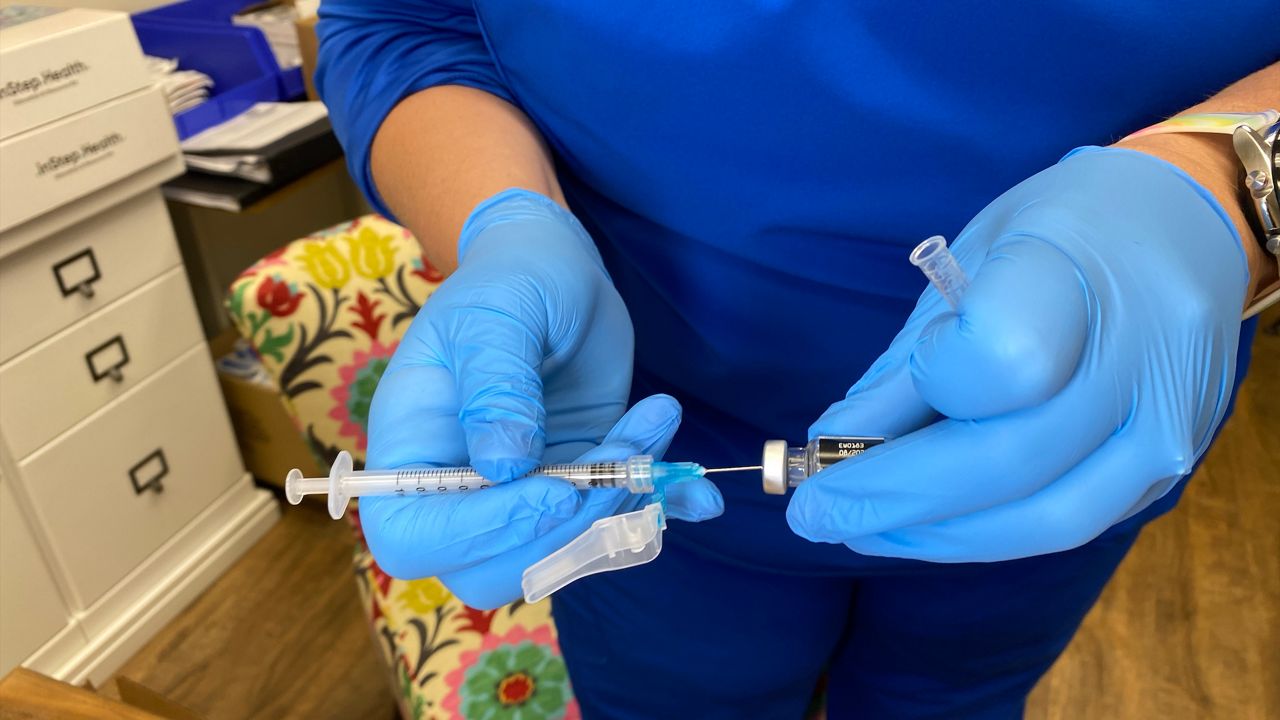LILLINGTON, N.C. – A pharmacy owner said new authorizations for pharmacies will make it much easier for many of her customers to get their medications.
What You Need To Know
Gov. Roy Cooper last month signed a bill to allow immunizing pharmacists to administer any FDA-approved injectable prescription medication
The bill also codifies into law pharmacists' ability to give COVID-19 vaccines
Pharmacists say some patients aren't comfortable injecting themselves
Most of the law's provisions become effective Feb. 1
Hogan's Pharmacy owner Stacie Hogan said some of her elderly customers in particular have asked in the past about getting help with prescriptions that needed to be injected. Although her staff's role previously was limited, they at least have the experience of giving flu shots and, since early this year, COVID-19 vaccinations.
“With vaccines, we've given out thousands of injections, so it's something that we've been able to help out our patients with,” she said.
Under a new state law signed last month, beginning on February 1, immunizing pharmacists will be able to administer any FDA-approved vaccine or self-administered injectable medication. They also will be able to dispense oral contraceptives, nicotine replacement therapy drugs and post-exposure prophylaxis for HIV treatment.
The new law also makes permanent pharmacists' ability to administer COVID-19 vaccines, something that had previously existed mainly through federal rulemaking. Previously, pharmacists were only allowed to administer a certain set of vaccines, including hepatitis A and B, tetanus-diphtheria and flu shots.

Penny Shelton, executive director of the N.C. Association of Pharmacists, said the vast majority of pharmacists are certified immunizers and have already been trained to give injections. She said other states have passed similar legislation over the last few years. Shelton said the legislation does not replace the need for a primary care physician, but it will make it easier to access medications, especially in time-sensitive situations such as HIV exposure.
“Sometimes due to individuals' jobs or just personal situations, the convenience of being able to go into a pharmacy and be able to provide these types of medications, this makes sense for our state,” she said.
Hogan echoed those sentiments. She said she plans to incorporate those services into what her pharmacy normally does. Hogan said it's not always feasible for someone to make an appointment with their doctor to get a shot.
“We're known for being an easily accessible health care provider,” she said. “Because we are so easily accessible, we are able to get a large amount of the population covered fairly easily.”



